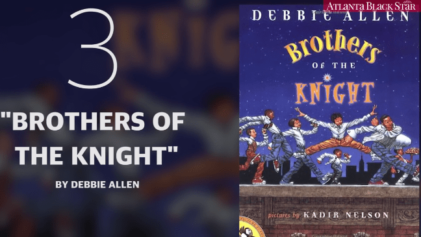
Poorer kids with little to no disposable income are usually unable to pay fees for overdue books. (Photo by Ariel Skelley /Blend Images/Getty Images).
Learning the importance of returning your favorite library books on time is a simple childhood lesson. For poorer kids who miss their due dates from time to time, however, rising late fees can become a financial burden, blocking their access to free books altogether.
The library cards of more than 225,000 New York City youths have been blocked in recent years due to outstanding library fees, The New York Times reported, leaving one in five city kids unable to check out a book. While “bad behavior” should not go unpunished, librarians have highlighted the negative impacts of blocking a child’s access to books, especially low-income kids who can’t afford to be without reading materials.
“We see the blockage of fines concentrated in the poorer neighborhoods where the kids want to be reading,” said Anthony W. Marx, president of the New York Public Library system. “If fines are getting in the way, we need to find solutions.”
While no one is saying kids and adults who don’t return books shouldn’t be punished, Marx argued that penalizing children for their inability to pay isn’t just or fair.
“[However], there’s also a moral hazard in teaching poor children they will lose privileges to read, and that kids who can afford fines will not,” he added.
Public tax returns from 2015 showed that the city’s three leading libraries — the New York Public Library, the Queens Library and the Brooklyn Library — collected a whopping $5.5 million in late fees. For context, the New York Public Library usually charges .25 cents for adults and .10 cents for children for a past due book, according to online news site ATTN:. Advanced media items like videos and DVDs cost borrowers $3 each day if they’re late.
Once readers rack up more than $15 in late fees, however, their borrowing privileges are suspended until they can make payment. For poorer kids, this punishment is particularly harsh, as they likely have little to no disposable income to buy back their ability to rent books.
“We have to ask, ‘What are we doing wrong?'” American Library Association President Julie Todaro told ATTN:. “How can we work with a community to basically get them back into the library. Our goal is to really make sure that the most vulnerable populations have access to the resources they need.”
Library leaders have suggested a number of solutions to help offset the impact of fees on low-income children, such as capping fines to encourage borrowers to return and creating amnesty programs that forgive debts. In Queens, young borrowers can “read down” their fines by vowing to read a certain number of books, The New York Times reported.
“We waived $160,000 in fees this year,” said Nick H. Buron, the borough’s chief librarian.
Rebecca T. Miller, editorial director for “Library Journal,” noted the contradictory nature of such fees, highlighting how they go against a library’s essential purpose.
“Given the core principal defining the library as a place to be used freely, any policy that limits access should be questioned,” Miller said. “Or at least designed to be as forgiving and easy to work with as possible.”


